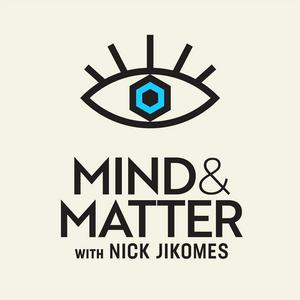Send a text
How the body's internal circadian clocks regulate metabolism, energy balance, and health.
TOPICS DISCUSSED:
Master circadian clock in the brain: Light detection via retina entrains the suprachiasmatic nucleus, which coordinates body-wide rhythms; intrinsic period slightly deviates from 24 hours, allowing seasonal flexibility.
Peripheral clocks in organs: Nearly all cells have autonomous clocks; liver and fat clocks rapidly adjust to feeding time, while brain clock aligns more tightly to light.
Clock mutations and metabolism: Disrupting core clock genes (e.g., CLOCK, BMAL1) causes obesity, liver fat accumulation, and impaired insulin secretion without hyperinsulinemia.
Timing of food intake: Eating the same high-fat calories during rest phase causes more weight gain than during active phase due to differences in energy dissipation.
Modern disruptions (jet lag, shift work, blue light): Create desynchrony between brain and peripheral clocks, contributing to metabolic issues; late-night eating impairs glucose handling.
Critical illness & feeding: Tube feeding at night (opposite natural cycle) induces rapid insulin resistance, highlighting mismatch costs.
Hormone rhythms: Testosterone, glucocorticoids, and others peak at specific times; misalignment affects stress, reproduction, and metabolism.
Weight loss drugs & maintenance: GLP-1 drugs reduce intake effectively, but regain involves neuroendocrine adaptations tied to brain clock pathways.
ABOUT THE GUEST: Joseph Bass, MD, PhD is Chief of Endocrinology, Metabolism and Molecular Medicine at Northwestern University Feinberg School of Medicine, Director of the Center for Diabetes and Metabolism, and a leading researcher who pioneered the link between circadian clock genes and metabolic disorders including obesity and diabetes.
RELATED EPISODE:
M&M 237 | Circadian Biology: Genetics, Behavior, Metabolism, Light, Oxygen & Melatonin | Joseph Takahashi
Support the show
Health Products by M&M Partners:
SporesMD: Premium mushrooms products (gourmet mushrooms, nootropics, research). Use code 'nickjikomes' for 20% off.
Lumen device: Optimize your metabolism for weight loss or athletic performance. MINDMATTER gets you 15% off.
AquaTru: Water filtration devices that remove microplastics, metals, bacteria, and more from your drinking water. Through link, $100 off AquaTru Carafe, Classic & Under Sink Units; $300 off Freestanding models.
Seed Oil Scout: Find restaurants with seed oil-free options, scan food products to see what they’re hiding, with this easy-to-use mobile app.
KetoCitra—Ketone body BHB + electrolytes formulated for kidney health. Use code MIND20 for 20% off any subscription (cancel anytime)
For all the ways you can support my efforts


